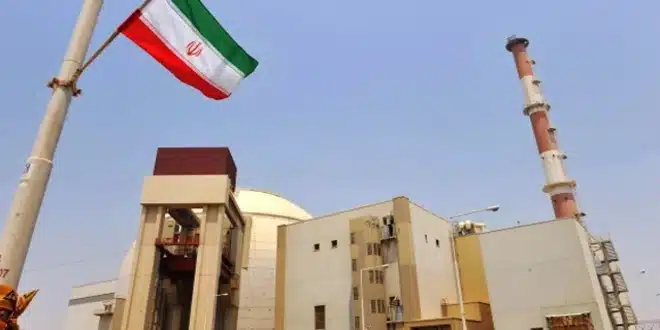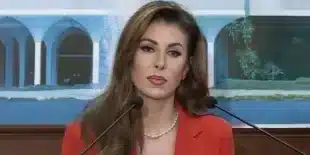The United Nations Security Council on Friday voted to restore sweeping economic sanctions against Iran, citing concerns over Tehran’s advancing nuclear program. The move, spearheaded by Britain, France, and Germany, reignites a long-running dispute over the 2015 nuclear deal known as the Joint Comprehensive Plan of Action (JCPOA). Iranian officials immediately condemned the decision, branding it “unlawful” and “politically motivated.”
European Concerns and Iran’s Response
The three European nations, all original signatories to the JCPOA, argued that Iran had repeatedly breached its commitments under the agreement. In a letter to the U.N. earlier this summer, they accused Tehran of amassing a uranium stockpile more than 40 times the level permitted by the treaty, along with other violations.
Iran’s U.N. ambassador, Amir Saeid Iravani, rejected the allegations and blasted the sanctions vote. “Today’s action is hasty, unnecessary, and unlawful. Iran recognizes no obligation to implement it,” he told the Council, describing the decision as an example of “politics of coercion.”
Foreign Minister Abbas Araghchi added that Tehran had offered what he called a “fair and balanced” proposal to European powers in a last-minute bid to avoid the snapback of sanctions, though Western leaders insisted that negotiations had yielded no meaningful progress.
Signals From Western Capitals
Britain’s ambassador to the U.N., Barbara Woodward, said following the vote that the decision reflected Iran’s failure to meet its obligations, but she left open the possibility of further diplomacy during next week’s U.N. General Assembly in New York. French President Emmanuel Macron similarly indicated earlier in the week that sanctions could be reinstated by the end of the month, though French officials at the U.N. emphasized that a negotiated settlement remained possible.
Richard Gowan, a U.N. analyst, noted that “the Council still has time to greenlight a further resolution extending the suspension of sanctions—if Iran and the Europeans reach a last-minute bargain.”
The 2015 Deal in Decline
The JCPOA, hailed as a breakthrough when it was signed in 2015, has unraveled steadily since the United States withdrew in 2018 under then-President Donald Trump. Washington subsequently reimposed sanctions, arguing that Iran was continuing to pursue nuclear weapons capabilities—an accusation Iran has consistently denied.
Following the U.S. exit, Tehran began scaling back its own compliance, gradually increasing uranium enrichment and restricting cooperation with international inspectors. The situation deteriorated further after this summer’s 12-day war between Israel and Iran, which saw Israeli airstrikes—and reported U.S. support—target key Iranian nuclear facilities. In response, Iran suspended cooperation with the International Atomic Energy Agency (IAEA), prompting inspectors from the Vienna-based U.N. body to leave the country.
Just before the sanctions vote, Iran withdrew a draft resolution at the IAEA that sought to ban attacks on nuclear facilities, citing what it described as U.S. pressure.
Snapback Clause and Escalating Risks
The latest U.N. decision invokes the JCPOA’s “snapback clause,” which allows sanctions to be reimposed if Iran is deemed to be in violation of the agreement. While Trump unsuccessfully attempted to trigger the mechanism in 2020—two years after pulling the U.S. out of the deal—European powers now argue they have “unambiguous legal grounds” to do so.
Tehran, however, disputes that interpretation and has warned that activating the clause could have severe consequences. Iranian officials have threatened to withdraw entirely from the Nuclear Non-Proliferation Treaty (NPT) if the sanctions are enforced, raising fears of a deeper escalation in the already volatile Middle East.
What Comes Next
The reimposition of sanctions is likely to intensify economic pressure on Iran, already struggling with inflation and international isolation. At the same time, the decision risks derailing any remaining diplomatic avenues for reviving the JCPOA. With world leaders set to gather in New York for the U.N. General Assembly, the coming weeks may determine whether the dispute hardens into a new era of confrontation—or whether space remains for last-minute diplomacy to prevent further escalation.


